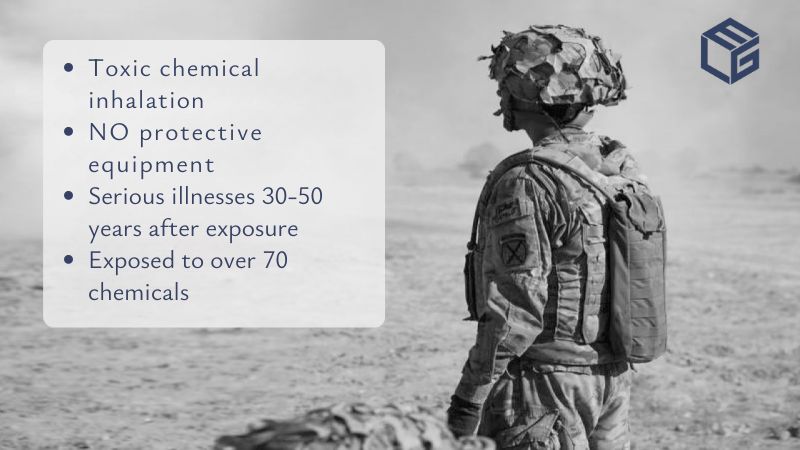Once much in use for its defensive properties as an insulator, fire retardant, etc., heavily employed because it seemed the perfect solution to alleviate the risk of potential fires in case of a malfunction or an attack, asbestos itself turned out to be an immense health hazard for those service members who came into contact with it.
Servicemen and women employed in the U.S. Air Forces were among those at risk, as a number of specific items in the Air Forces inventory used asbestos in various products virtually omnipresent in airplanes that needed insulation, such as:
- brake pads
- gaskets
- engine heat shields
- electrical wiring
- cockpit heating systems
- torque valves
- cooling equipment
Asbestos was also used in the construction of many Air Force bases and barracks, thus, many Air Force veterans may have been exposed to asbestos through items which include:
Whenever maintenance work was performed on an aircraft, or whenever repair work was conducted on buildings, asbestos fibers were released into the air and were most likely inhaled.
Our clients served at various Air Force bases throughout the country, including:
- Edwards Air Force Base
- Scott Air Force Base
- Wright-Patterson Air Force Base
- Lackland Air Force Base
- Joint Base Lewis-McChord
- Hancock Air Force Base
- Brookley Air Force Base
- Gunter Air Force Base
- Maxwell Air Force Base
- Luke Air Force Base
- Williams Air Force Base
- Selfridge Air Force Base
- Norton Air Force Base
- Travis Air Force Base
- Homestead Air Force Base
- Mcdill Air Force Base
- Orlando Air Force Base
- Patrick Air Force Base
- Tyndall Air Force Base
- Midland Air Force Base
- Reese Air Force Base
Surviving family members of deceased Air Force veterans are entitled to financial compensation
The U.S. Air Forces were not immune to the promises of asbestos, and, although there were suspicions as to its negative health effects as early as the first decades of the 20th century, it appears that its benefits outweighed its dangers. It was only in the 1970s that the U.S. Armed Forces began to accept that the human cost in using asbestos was much too high, and asbestos use was cut down and heavily regulated.
Surviving spouses and dependents of Air Force veterans who have died from asbestos-related cancer as a result of their service may be to get a tax-free monetary benefit called VA Dependency and Indemnity Compensation. Eligible survivors can also receive compensation from one or more of several trust funds established to compensate victims and their families. If you lost a loved one to an asbestos-related disease let us explain how we can help you during this difficult time.
Asbestos exposure jobs in the U.S. Air Forces
